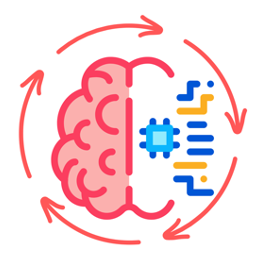The emerging paradigm, known as Intent-Based Outcome Specification, in the field of AI, stands out for its focus on the explicit definition of intentions or desired outcomes when interacting with a generative AI system. Instead of merely providing input data and allowing the system to determine the output, this approach centers around a precise understanding of the intention behind the request (Figure 1).
 As a result, this approach involves more direct communication of the goals expected to be achieved with the generative AI system, allowing for greater customization and adaptation to the specific needs of the user. By clearly expressing the desired intention, the system can tailor its outputs to meet those particular objectives, thereby enhancing the relevance and usefulness of the generated responses.
As a result, this approach involves more direct communication of the goals expected to be achieved with the generative AI system, allowing for greater customization and adaptation to the specific needs of the user. By clearly expressing the desired intention, the system can tailor its outputs to meet those particular objectives, thereby enhancing the relevance and usefulness of the generated responses.
This paradigm shift represents a significant advancement in the interaction between users and generative AI systems. It emphasizes a more nuanced and intentional approach to utilizing AI capabilities, promoting a deeper understanding of user objectives and facilitating a more personalized and adaptive user experience. The incorporation of explicit intentionality in the interaction process not only enhances the effectiveness of AI applications but also contributes to the broader discourse on responsible and user-centric AI development.
In addition, it promotes responsible and ethical AI usage. By emphasizing explicit intentions, users and developers can ensure that the generated content aligns with ethical standards and avoids unintended biases. This approach contributes to the development of AI systems that are more transparent, accountable, and aligned with user values. It also encourages critical thinking and active user involvement in the AI interaction process. Users are prompted to thoughtfully articulate their goals, fostering a more engaged and intentional use of AI capabilities. This not only improves the quality of generated content but also empowers users to make informed decisions about the AI-generated outcomes.
In summary, the Intent-Based Outcome Specification paradigm is crucial for effective Generative AI usage as it enhances communication, enables personalization, promotes responsible AI practices, and encourages active user engagement. Embracing this paradigm ensures that Generative AI becomes a valuable tool aligned with user needs, ethical considerations, and the overall goals of responsible AI development.
 Fernando Vera, PhD. Doctor in Educational Sciences, academic, researcher, and international consultant, with advanced postgraduate training at the master’s and doctoral levels. He has undertaken academic and research stays in China, Israel, Colombia, Mexico, and Argentina. Currently, he is completing his second doctoral degree, with international mention from the University of the Basque Country/Euskal Herriko Unibertsitatea (UPV-EHU), Spain.
Fernando Vera, PhD. Doctor in Educational Sciences, academic, researcher, and international consultant, with advanced postgraduate training at the master’s and doctoral levels. He has undertaken academic and research stays in China, Israel, Colombia, Mexico, and Argentina. Currently, he is completing his second doctoral degree, with international mention from the University of the Basque Country/Euskal Herriko Unibertsitatea (UPV-EHU), Spain.
